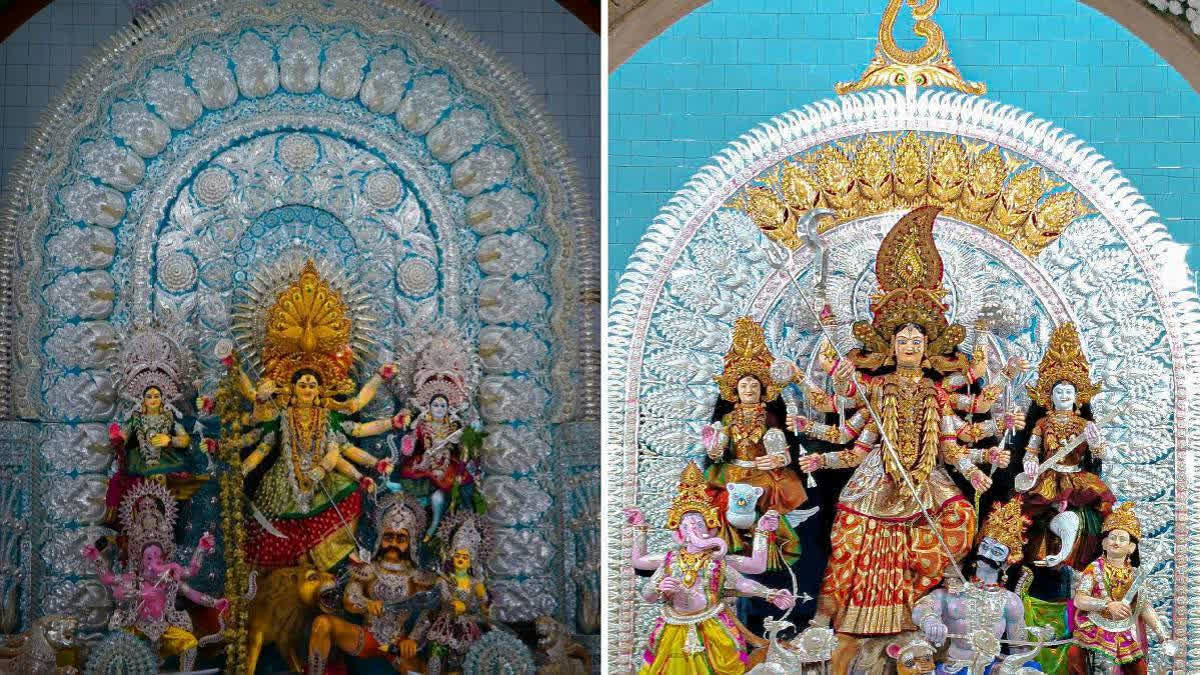Sambalpur : In the culturally vibrant city of Sambalpur, Durga Puja is being celebrated for the 106th year in a uniquely Bengali way, adding a splash of Kolkata’s flavour to the festivities. The Bengali community settled here since the late 19th century, celebrates the Sharadiya Durga Puja with fervour at the Kali Badi.
While the city is home to prominent Shakti Peethas like Ma Samaleswari, Ma Patneshwari, and Ma Ghanteswari, the Kali Badi Durga Puja stands out for its adherence to traditional Bengali rituals, creating a cultural fusion that locals and visitors alike cherish.
Traditional Rituals with a Bengali Twist
The Durga Puja at Sambalpur’s Kali Badi has a few elements that make it distinct. Each year, the rituals are performed by Brahmin priests brought from Kolkata, ensuring authenticity. The idol of Ma Durga is carried to the river for immersion, not on a vehicle like in most places, but in a palanquin, a tradition that devotees hold close to their heart.
Even the much-loved Dhunuchi dance is a sight to behold, performed by skilled artists from West Bengal, and accompanied by the rhythmic beats of the “Shadhan Baja” musicians. Local devotee Tapas Mishra, who has been living in Sambalpur for 18 years, explains, “Our worship is based on the Kalika Purana, and we follow every tradition with the utmost dedication. This celebration has been going on for over a century now, preserving the connection between Odisha and Bengal.”
The Historic Roots of Kali Badi
The history of Kali Badi Durga Puja is as fascinating as the rituals. The Bengali community in Sambalpur traces its roots back to the mid-1800s, when Bengalis came here during British rule to work. They brought with them their love for art, culture, and devotion to Goddess Durga.
In 1916, a Bengali drama performance led by Ray Bahadur Yogendra Nath Sen helped raise Rs 31 from ticket sales, which was used to purchase the land for Kali Badi. Two years later, in 1918, the first Durga Puja was celebrated, and the tradition has continued uninterrupted for 106 years.
Jaybrat De, a member of the Kali Badi Puja Committee, reflects on the long-standing cultural bridge between Bengal and Sambalpur, saying, “What started as a small gathering has now grown into a large celebration. Despite being far from Kolkata, we’ve kept our traditions alive.”
A Culinary and Cultural Delight
Another unique feature of the Kali Badi Durga Puja is the feast prepared for Ma Durga, cooked by chefs specially brought in from Kolkata. From the sindur khela, where women smear vermillion on each other, to the final procession of the palanquin, each aspect of the puja blends Bengali rituals with Sambalpur’s rich cultural backdrop.
Tapas Kolendi, an artist from West Bengal who performs at the puja each year, expresses his joy, “We travel from Bakuda district every year to be a part of this. The atmosphere is heartwarming, and the way the locals respect our traditions is incredible.”
Read More



